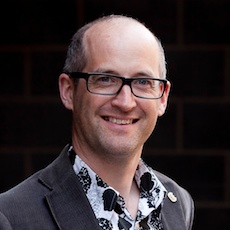A report published on the 07 February 2013 by the Royal Academy of Engineering examines this question.

Image courtesy of NASA
UK must plan now to defend itself against extreme solar weather events
The UK should plan now to mitigate the effects of a rare but potentially serious solar superstorm, according to a report published today by the Royal Academy of Engineering. Although the UK is better prepared than many countries, there are areas where we need to improve our resilience.
http://www.raeng.org.uk/news/releases/shownews.htm?NewsID=825
The report Extreme space weather: impacts on engineered systems and infrastructure, was drawn up with the help of a diverse range of experts. This is the first report of its kind.
Areas highlighted
- Electricity grid: six super grid transformers in England and Wales and a further seven grid transformers in Scotland could be damaged in the worse case scenario. The time to repair would be between weeks and months. However, local disruption is only expected to be hours as nodes have more than one transformer available.
- Satellites: up to 10% of satellites could experience temporary outages lasting hours to days as a result of an extreme solar event.
- Aircraft passenger and crew safety: increased cancer risk of 1 in 1,000 for each person exposed, although this must be considered in the context of the lifetime risk of cancer, which is about 30%.
- Ground and avionic device technology: the estimate is that during a solar superstorm the avionic risk will be ~1,200 times higher than the quiescent background risk level and this could increase pilot workload.
- Global navigation satellite systems (GNSS): a solar superstorm might render GNSS partially or completely inoperable for between one and three days.
- Cellular and emergency communications: the UK’s commercial cellular communications networks are much more resilient to the effects of a solar superstorm than those deployed in a number of other countries since they are not reliant on GNSS timing. The emergency communications network is dependent on GNSS and mitigation strategies are already in place.
- High frequency (HF) communications: HF communications is likely to be rendered inoperable for several days during a solar superstorm.
- Mobile satellite communications: L-band (~1.5GHz) satellite
communications might be unavailable, or provide a poor quality
of service, for between one and three days. - Terrestrial broadcasting: vulnerable to secondary effects,
such as loss of power and GNSS timing.
The take home message
Our message is: Don’t panic, but do prepare – a solar superstorm will happen one day and we need to be ready for it. Many steps have already been taken to minimise the impact of solar superstorms on current technology and by following the recommendations in the report we anticipate that the UK can further minimise the impact.
Professor Paul Cannon FREng, Chair of the Academy’s working group on extreme solar weather
Links
UK must plan now to defend itself against extreme solar weather events
Extreme space weather: impacts on engineered systems and infrastructure (opens pdf)
